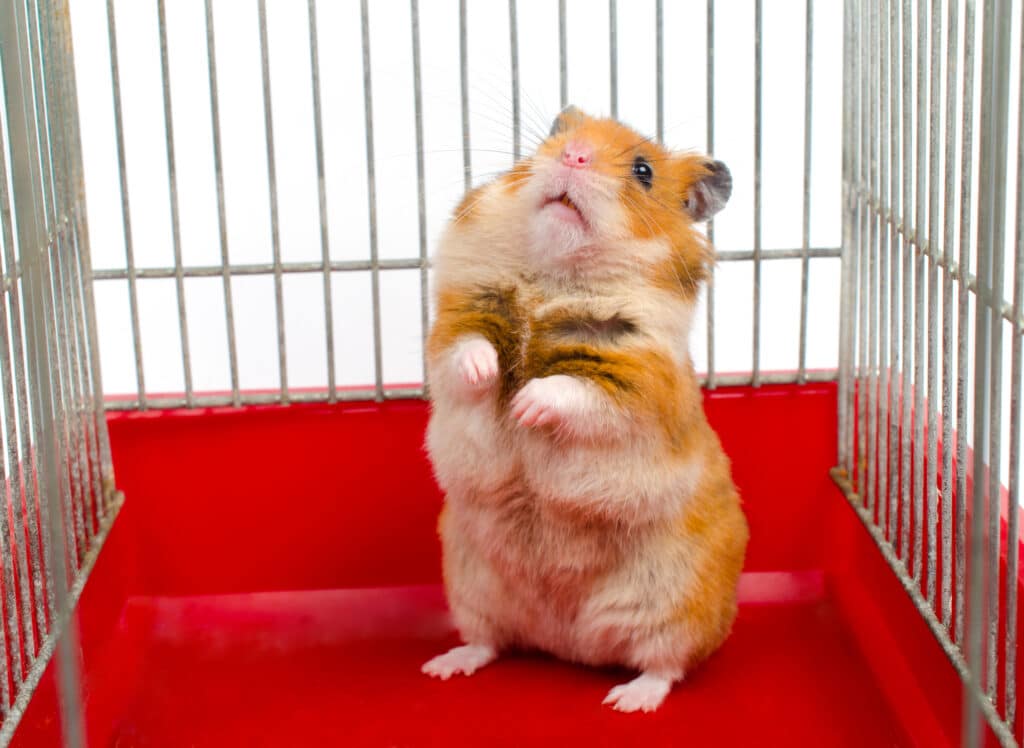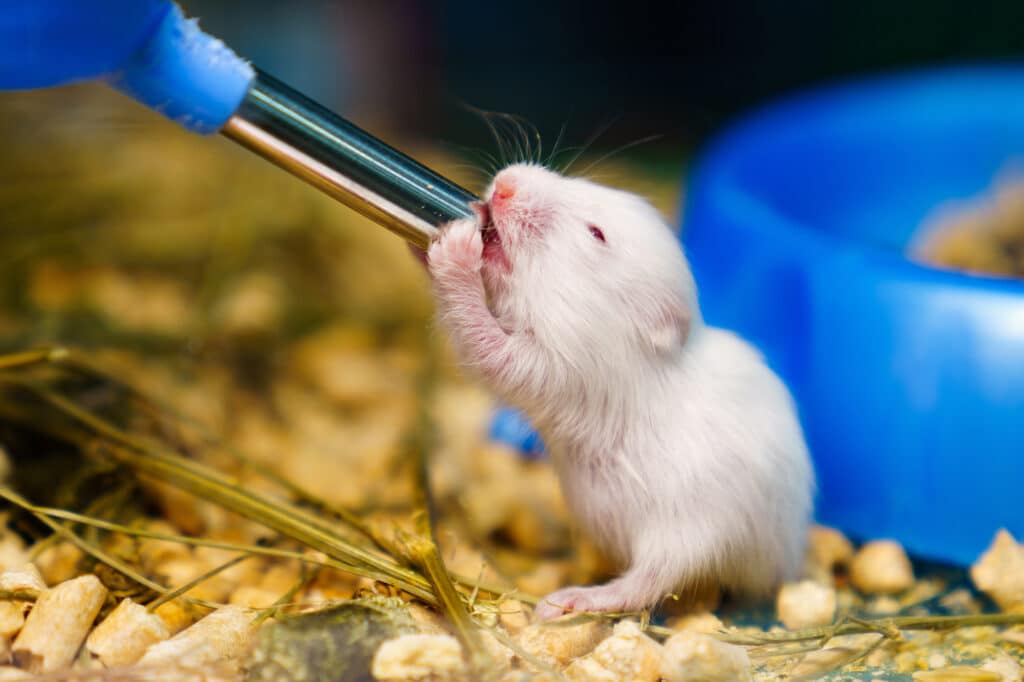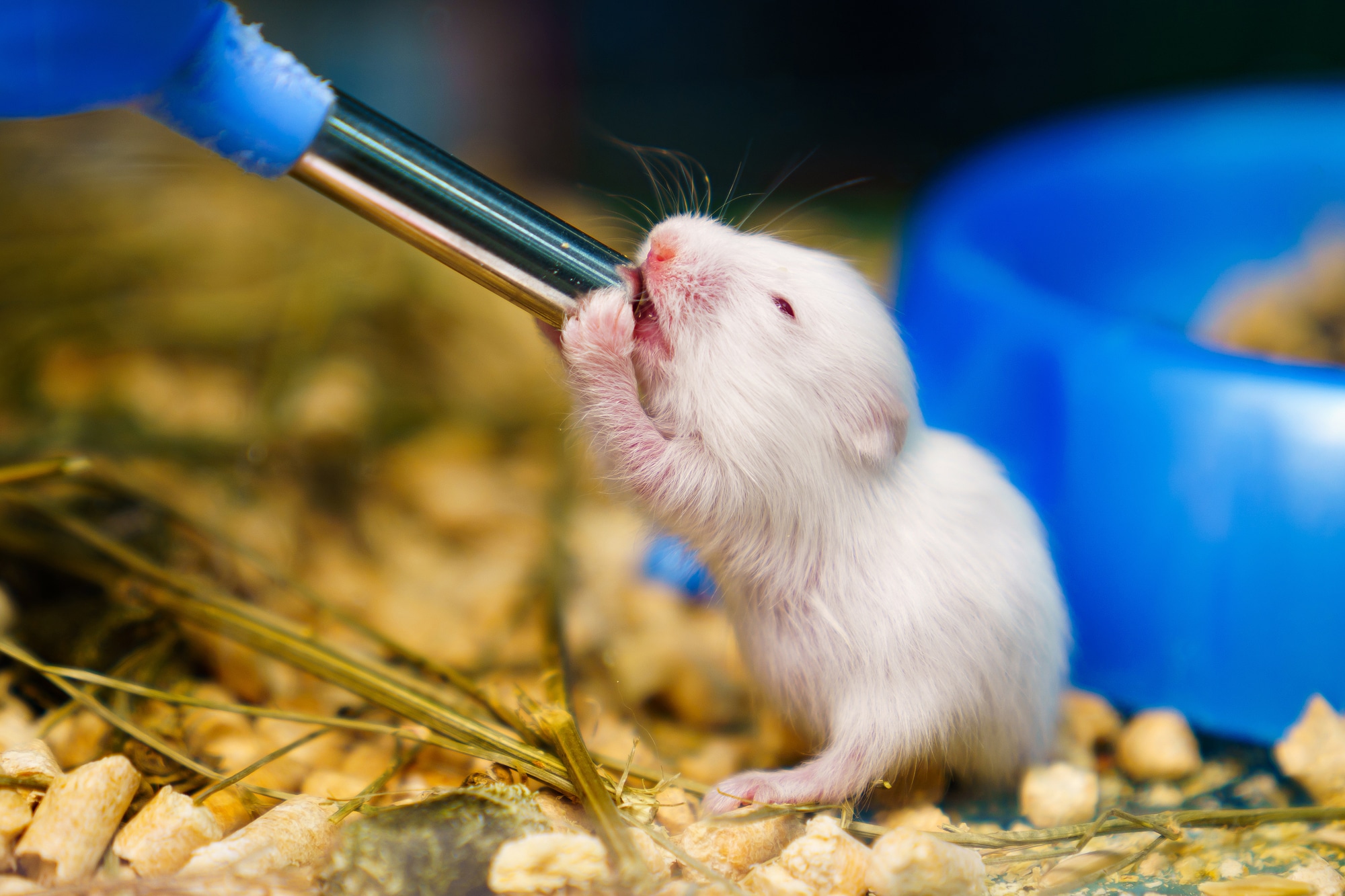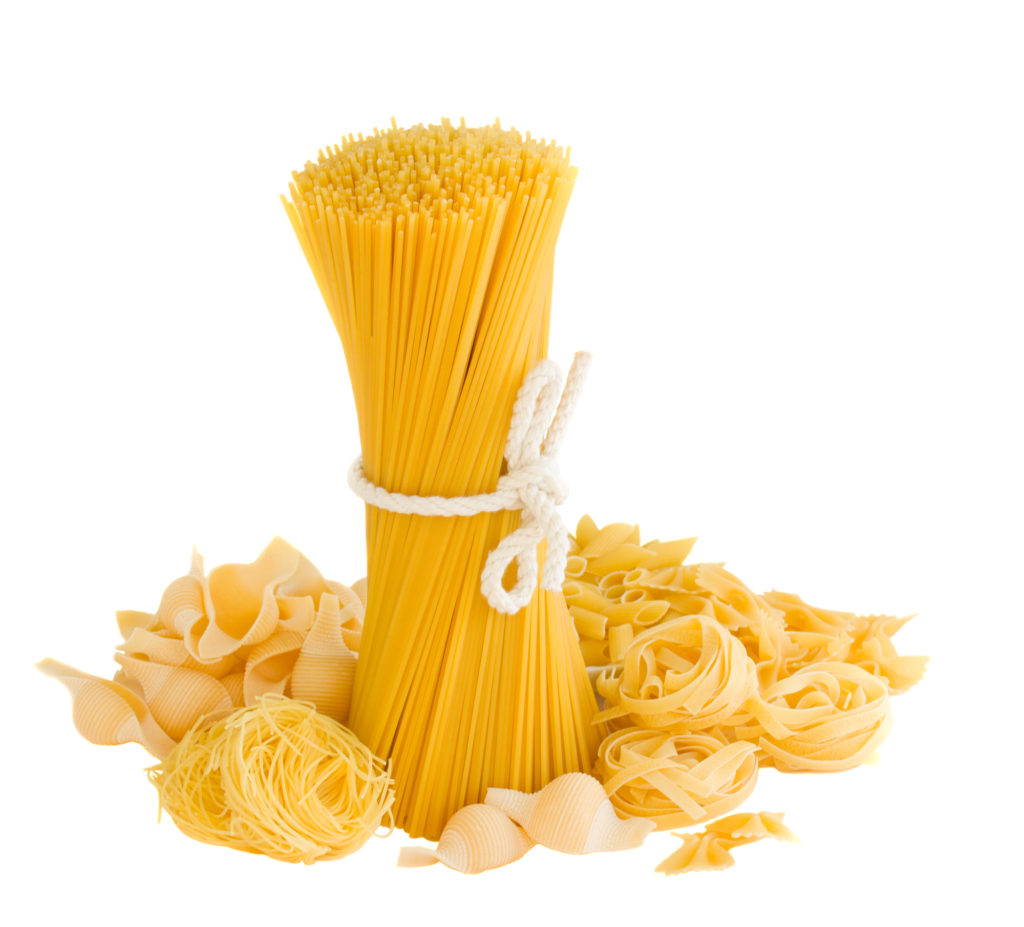If you own a hamster, you are responsible for his well-being. So, you have to observe him every day and watch out for any signs that indicate he is sick. One such sign is not drinking water (either not at all drinking water or drinking only very little water). But if you think your hamster is not drinking water, it could be because of a number of reasons, not just because he is sick. In this blog post, we will find out why your hamster is not drinking water and what to do about it.
Reasons why your hamster is not drinking water
1. He doesn’t like the water’s smell and/or taste
It may sound stupid, but maybe, your hamster doesn’t like the smell or taste of the water you provided. Even you wouldn’t drink water that smells funny or tastes weird. Your hamster isn’t any different. If he doesn’t like the smell or taste of the water you provided, he may not drink it.
This is especially true if you have recently brought your hamster home from a pet shop or pet shelter. The water he drank in the store might have tasted different from the water at your home. So, always inquire the pet shop employees as to which water (Tap water, underground water, bottled mineral water, etc. ) they normally provide to the pets at their store. Try to provide the same type of water to your hamster when you bring him home.
2. He is stressed
Hamsters are tiny animals. So they can get stressed easily. This is especially true for dwarf hamsters, which are far smaller than Syrian hamsters. Hamsters are also more prone to stress when they are first brought home from a pet shop or shelter.

Follow the below steps to relieve your hamster’s stress:
1. When you purchase a hamster from a pet shop or shelter, the shop will put your hamster in a plastic box and give him to you. This box will also contain a small amount of bedding from the cage in which your hamster lived with his siblings until then. When you bring your hamster home and put him inside the cage you have set up for him, everything will be new for him. So, sprinkle some of the bedding in the plastic box so that the new cage smells slightly like his old one. That way, he will feel at home sooner and will be less stressed.
2. Hamsters have extremely good senses of smell and hearing (Also read: How good is your hamster’s sense of smell? & Are hamsters sensitive to sound?). So, loud noises and pungent smells can stress your hamster out. Therefore, make sure that the room in which your hamster cage is is quiet enough. Clean the room and keep it hygienic so that it doesn’t smell bad. Remove your hamster’s poop and the bedding where your hamster pees every day.
3. Hamsters are fragile creatures. So, you should handle them gently. Mishandling can bring pain to your hamster and make him get scared of you.
4. If you house multiple hamsters together, it is possible for one of the hamsters to be bullied by the others. If that happens, you should separate the abused hamster and put him in a separate cage.
The blog posts below can help you further in keeping your hamster stress-free.
Why is your hamster scared of you?
3. He has gotten old
When we get older, our bodies and brains do not coordinate signals about thirst effectively, i.e., even if we are extremely thirsty and our bodies need more water, drinking just a small amount of water could quench that thirst (Source: ABC News). This phenomenon could also occur in hamsters, making your hamster drink less water, i.e., even if his body needs more water, his brain tells him that he has had enough after consuming very little water.
Humans have sweat glands. So, our bodies produce sweat when we exercise. As a result, water is lost from our bodies as sweat. However, hamsters do not have sweat glands. So, there is no risk of hamsters losing water in the form of sweat.
However, both humans and hamsters pass urine. After exercising (either when you work out or your hamster runs in the hamster wheel), chemicals like creatinine and lactic acid are produced as byproducts of muscle activity. The body has to filter these chemicals from the bloodstream. So, urine production is increased to excrete these chemicals from the body.
Moreover, hormones like endorphins, dopamine, and aldosterone are released during exercising, which can also cause more urine to be produced by increasing the blood flow to the kidneys (Source: Live Strong).
Since young hamsters tend to be more active than older hamsters, they lose more water in the form of urine. Therefore, they drink more water than older hamsters. So, as a hamster turns old, he drinks less water.
4. His food has a high water content.
If you provide only dry food (like the commercially available hamster mix) to your hamster, he will drink more water.
You have to remember that most hamster species are desert animals. They live in arid, desert-like conditions. So, they have evolved to conserve water, i.e., their bodies can survive even with very little water. Therefore, if you provide your hamster with a diet rich in water (for example, cucumber, watermelon, etc.), his body can extract the required amount of water from the food you offer him. So, your hamster would not feel thirsty and hence, will only drink a little water.
In this case, your hamster’s health will not be affected even if he drinks less water.
If you are not sure about what food you should give your hamster, the blog posts below can help:
5. He is sick
If your hamster is young, not stressed, and his food contains a limited amount of water content but he is still not drinking water, he might be sick. Lethargy, loss of appetite, drinking less water, and weight loss are common symptoms of many hamster illnesses. Like many small prey animals, hamsters, too, hide symptoms of sicknesses at the early stages (Source: Pango Pets).
So, if your hamster doesn’t drink enough water, you have to look for other clues besides not drinking enough water:
- Observe his daily schedule. Did his daily schedule change all of a sudden?
- Did he suddenly start eating less?
- Did he suddenly show reduced physical activity?
- Does he sneeze, have difficulty in breathing, or have a runny nose?
- Does he lose hair or have bald patches in his fur?
- Did he suddenly start sleeping more?
- Is there a sudden change in the color or texture of your hamster’s poop?
- Is there a sudden change in the color of your hamster’s urine?
- Is there redness or swelling anywhere in his body?
If you notice any of the symptoms mentioned above, your hamster might need immediate veterinary care.
What should you do if you cannot see a veterinary doctor immediately?
As explained above, you should consult a veterinarian if you think your hamster is sick. But if you cannot see a vet immediately (Sundays, government holidays, etc.), you should first ensure that your hamster drinks water.
If your hamster doesn’t drink water by himself, then you should take an eyedropper or syringe and use it to nurse your hamster with water. The recommended amount is two drops every 30 minutes (Source: Pets Vills).
If your hamster is just not drinking enough water but doesn’t show any other symptoms of sickness, giving him water-rich foods for a short while before he starts drinking enough water can be a good strategy. Use fruits like cucumber or watermelon that are rich in water. Remove the seeds and peel before giving a hamster-sized piece to your hamster.
6. He is being bullied
If you house multiple hamsters in a cage, it is possible for a timid hamster to be bullied by others. They may even prevent him from drinking water from the water bottle or bowl. So, if you house multiple hamsters, you should always have multiple water sources. If you think that one of the hamsters is being bullied, you should separate him and keep him in a separate cage.
7. The water source is not accessible
If you have a water bottle or a water bowl and your hamster cannot reach it, he will not be able to drink water. So, make sure that the water source is easily accessible to your hamster at all times.
8. The water bottle doesn’t work
A hamster water bottle contains a plastic bottle, a metal nozzle, and a small ball. The plastic bottle holds the water; the metal nozzle dispenses the water, and the ball makes sure that water doesn’t keep leaking all the time. The ball stays at the tip of the nozzle due to gravity, thus preventing the water from leaking. When the hamster presses the ball, the ball goes up, letting the water behind it flow past it through the hole.
However, if the ball gets stuck (it is possible if some dirt in the hamster’s mouth enters the nozzle), water may not come out through the nozzle. So, always keep more than one water source in your hamster’s cage – either two water bottles, two water bowls, or a water bottle and a water bowl.
9. You did not measure properly
Finally, it is also possible that your hamster is drinking enough water, but you did not measure it properly. Even though hamsters need uninterrupted access to water daily, they don’t drink much of it. A hamster drinks, on average, 8.5ml of water/100g of body weight per day. Male Syrian hamsters drink even less – only 5ml/100g of body weight per day. For more information, read: How much water do hamsters drink?
Our Syrian hamster Hum weighed just 75g when we got him from the pet store. So, as a male Syrian hamster, he might drink just 3.75ml of water per day, which is about the amount a teaspoon holds.
If you think your hamster is not drinking water, it may be because you measured it wrong or you did not see the water level going down.
How long can a hamster live without water?
We, humans, can go three days without water. Similarly, hamsters can also live for 2 to 4 days without water. But that doesn’t mean you should put your hamster through the ordeal. Always keep fresh water for your hamster every day. The term ‘Fresh water’ implies that you replace the water at least once every day.
Your hamster does not just need fresh but also clean water to lead a healthy life. So, provide clean water to your hamster. In my blog post, Can hamsters drink out of a bowl? I go into detail on how to give your hamster clean, safe water. You can read it to find out which water is the safest for your hamster – Tap water, bottled water, filtered water, or distilled water?



